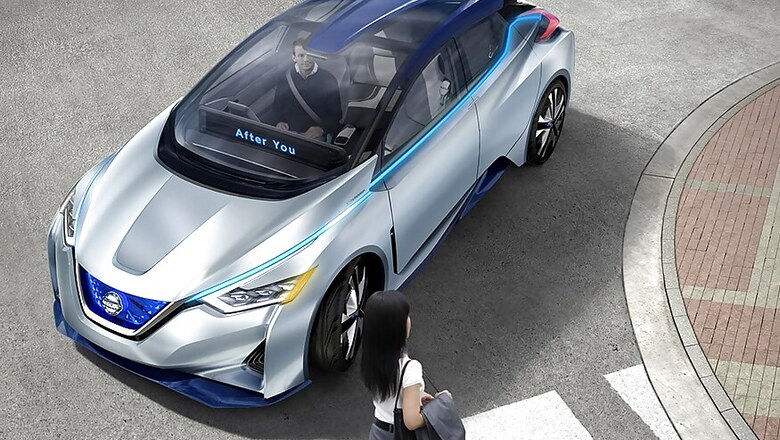
views
Active driver safety systems may already be cutting road accidents and injuries but according to mapping, location and cloud Services Company HERE and automotive industry analysts SBD, if car companies don't start working together in order to usher in the age of autonomous vehicles, the world's roads could be worse, not better.
By the end of 2016, 11 million more new cars are expected to hit Chinese, European and North American roads equipped with the latest-generation active driver assistance systems such as adaptive cruise control, blind spot monitoring and emergency autonomous braking.
Although these systems are basic compared with the truly autonomous driving technologies in testing, they are already making a genuine difference in terms of road safety.
A study from Carnegie Mellon College of Engineering shows these systems alone could prevent as many as 10,000 fatal road accidents in the US in any given year. "We are seeing that partial automation is accomplishing crash and crash severity reductions, and we expect that to improve," said study co-author Chris T. Hendrickson.
This year will also see the first premium cars on sale that can slow, accelerate or overtake on highways or follow a route without steering input from the driver, but it will take time for mainstream cars to catch up. Nissan, led by AI expert and former NASA researcher Maarten Sierhuis, is aiming to bring this level of autonomy to 10 of its models in 2018.Also Read: Nissan Rolls Out Auto-Drive System as Tesla Hit by Probe
"Bringing this new technology to society, it will change so many things," said Sierhuis. However, despite the positive Carnegie Mellon findings, there's a very real chance that autonomous vehicles could lead to more rather than fewer problems on the road from accidents to congestion.
"The journey towards the fully autonomous car is full of potholes, which may create short-term pains in unexpected ways," said Andrew Hart, Director at SBD.
Just because a car has autonomous features doesn't mean that a driver will use them, indeed this "off" or "on" approach is what is currently shaping car companies' technology development. "I want the capability to drive myself and I want the capability to be driven and I will decide which capability I want to have happen at that moment," said Sierhuis.
Therefore HERE is calling for carmakers to work together rather than in competition.
"Greater collaboration is needed to ensure drivers and road operators alike can seamlessly transition into the era of automated vehicles," said Carrie Cox, Senior Product Marketing Manager at HERE. "But how we get to that objective and what it takes to get there, in terms of building the necessary digital infrastructure at scale, is a call to action for all of us."
















Comments
0 comment